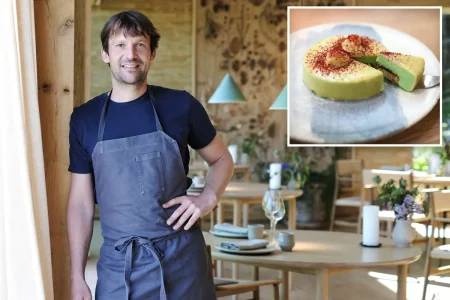Sophie Rain: Setting Standards in a World of Bare Minimums
Sophie Rain, the 20-year-old Miami-based model who has amassed an impressive fortune of over $80 million through her online content, has captured public attention not just for her financial success but for her unapologetic approach to dating standards. Dubbing herself the “world’s most unachievable woman,” Rain represents a growing sentiment among young women who refuse to settle for partners offering only the bare minimum in relationships. Despite her NSFW online presence that has placed her among the top 0.01% of earners on her platform, Rain maintains a surprisingly traditional outlook on personal relationships. “I’m not high-maintenance,” she explains, “I just refuse to settle for any less than I deserve.” This stance has sparked conversations about modern relationship expectations, particularly among Gen Z women who, like Rain, are increasingly financially independent and therefore able to be more selective about potential partners.
What makes Rain’s perspective particularly interesting is her clear-eyed understanding of what truly matters in a partnership. While her substantial earnings might suggest she’s seeking an equally wealthy match, she dismisses this notion outright: “People think because I’m successful, I must want some billionaire boyfriend. But I actually don’t care about that – I’m doing well enough on my own.” Instead, her non-negotiables reflect a maturity that seems beyond her years. “Honesty, ambition, loyalty – and I want him to be funny, too. If you can’t tick those four boxes, you’re not the one,” she states with conviction. Rain demonstrates a refreshing awareness that “looks fade, money comes and goes, but personality is forever,” prioritizing character traits that contribute to lasting relationships rather than superficial attributes that might fade with time.
The young model’s career creates unique challenges in her dating life, particularly regarding how potential partners might react to her work. Rain is adamant about not tolerating insecurity or judgment about her online presence, saying, “I need someone confident enough to know that me being online doesn’t threaten what we have.” This requirement reflects the modern reality many content creators face: navigating personal relationships while maintaining a public persona that may involve intimate or provocative content. Rain expresses a desire to find someone who appreciates her for who she is beyond her online presence, someone who might even be unaware of her career initially. This aspiration, however, seems increasingly difficult to fulfill as her fame grows—particularly considering she has devoted fans who demonstrate their admiration through substantial financial support, including one who reportedly spent $4.7 million on her content in less than a year.
Perhaps the most unexpected aspect of Rain’s story is the contrast between her professional life and personal choices. Despite creating content that falls into the NSFW category and building her fortune in an industry often associated with sexuality, Rain proudly identifies as a virgin. This seeming contradiction challenges many people’s assumptions and stereotypes about content creators in her field. “I don’t know many others my age who are still virgins. I definitely feel like the odd one out sometimes,” she admits, highlighting how her choice places her outside the norm for her generation. The disconnect between her public persona and personal values creates a fascinating dichotomy that defies easy categorization, making her story all the more compelling in a world that often tries to place people in simple, understandable boxes.
Rain’s commitment to saving herself for marriage stems from deeply held personal values rather than external religious or cultural pressures. “Sex is important but for me, love and commitment come first, so I want my first time to be with my husband,” she explains, framing her choice as an expression of self-worth rather than adherence to outdated conventions. “Some people think it’s old-fashioned but I see it as knowing my worth,” she adds, reclaiming what might be viewed as a traditional value through a modern lens of personal empowerment and choice. This perspective offers an interesting counterpoint to dominant narratives about sexual liberation, suggesting that true empowerment might sometimes mean making choices that go against prevailing social trends when those choices align with one’s personal values and vision for the future.
Despite her modern career path and financial independence, Rain’s vision for her future follows surprisingly traditional lines. “I want a husband, kids, family dinners, the whole thing,” she shares, revealing aspirations that might seem at odds with her current lifestyle but speak to the complexity of human desires and dreams. Rain’s story encapsulates a fascinating tension present in many young people’s lives today: navigating between new opportunities for self-expression and financial independence while still harboring desires for connection, commitment, and family structures that have remained relatively constant across generations. In this way, she represents a generation straddling multiple worlds—embracing the freedoms and possibilities of digital life while still seeking the stability and fulfillment that come from traditional human connections. Rain’s journey suggests that perhaps the path forward isn’t about choosing between modern and traditional values, but finding ways to integrate both into a life that remains true to one’s authentic self.














